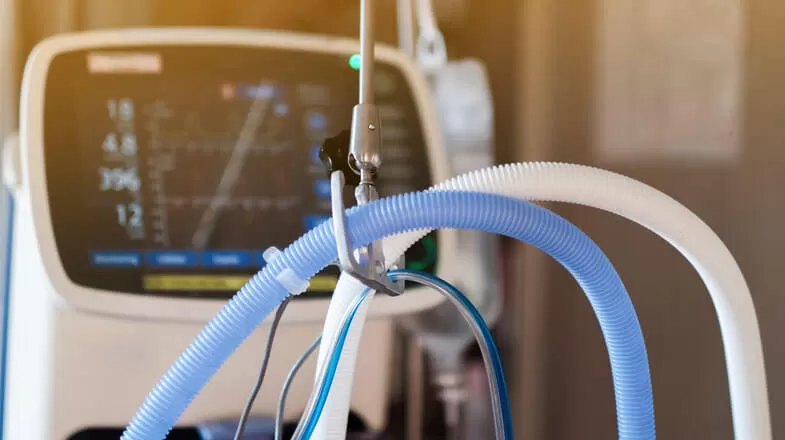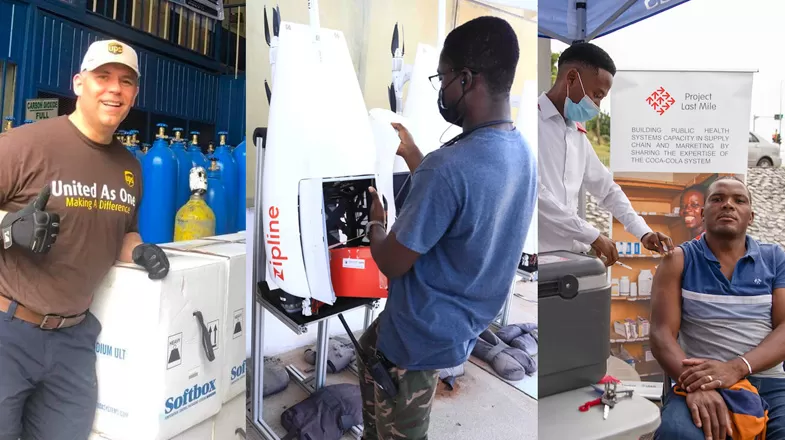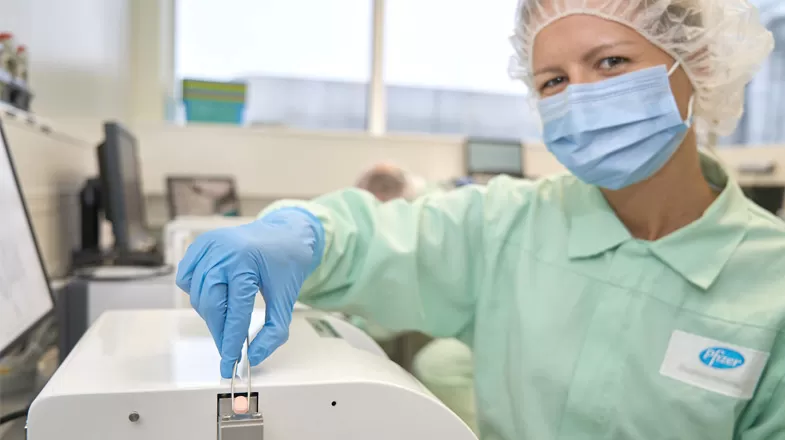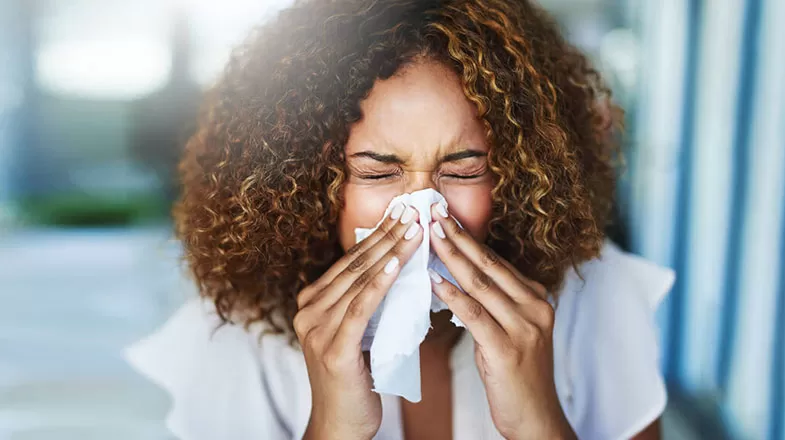- Science
- Clinical Trials
- Guide to Clinical Trials Your participation makes a difference
- Clinical Trials in Children Designed to improve kids' health
- Data and Results Sharing our Results
- Integrity and Transparency Building Trust
- Diversity Equity and Representation
- Plain Language Study Results Trial Result Summaries
- Expanded Access & Compassionate Use Possible Treatment Options
- Find a Trial
- Areas of Focus
- Rare Disease Smaller populations but big impact
- Internal Medicine Extending lifespans worldwide
- Inflammation & Immunology Treatment at the molecular level
- Vaccines Preventing the spread of infections
- Oncology The science of optimism
- Anti Infectives Combatting an evolving risk
- Areas of Innovation
- Gene Therapy Breakthroughs become treatments
- Medicinal Sciences The next generation of science
- Precision Medicine Developing tailored medicines
- Maternal Immunization Protecting newborns at the start
- mRNA Technology Unleashing the next wave of scientific innovations
- Diseases & Conditions
- Coronavirus Resources
- Product Pipeline
- Research Sites
- Clinical Trials
- Products
- How Drugs are Made
- Branded vs. Generic Learn the difference
- Biologics & Biosimilars Cures found in nature
- Commitment to Quality Maintaining the highest standards
- Global Supply Strategic manufacturing locations
- Manufacturing Sites Where medicine is made in the U.S.
- Medicine Safety
- Health Literacy Learning to be well
- Treatment Choices Learning about treatment decisions
- Partnering With Patients Helping others by reporting side effects
- Tips for Patients Preventing medication errors
- Reporting Adverse Events
- Counterfeiting Preventing medication errors
- Product Safety
- Product List
- Product Contacts
- PfizerPro for Professionals
- Patient Assistance Programs
- Distributors
- How Drugs are Made
- Stories
- Newsroom
- About
- People
- Executives Our senior-most leadership
- Board Members The people steering our company
- Scientists Our experts making discoveries
- Patient Stories Our patients
- Colleague Stories Our colleagues
- Responsibility
- Ethics & Compliance Each of us is responsible
- Responsible Business Breakthroughs that change patients’ lives
- Patient Advocacy & Engagement Putting Patients First
- Global Impact Meeting urgent needs worldwide
- Diversity, Equity, and Inclusion Everyone has something to offer
- Environmental Sustainability Our responsiblity to the environment
- Human Rights Furthering dignity and worth
- Health & Safety
- Intellectual Property The benefits of fair competition
- EHS Governance
- Misinformation
- Programs & Policies
- Grants Support for independent research
- Political Partnership Supporting like-minded organizations
- Working with Healthcare Professionals Collaboration to improve lives
- Prescription Value & Pricing How to lower patient costs
- Privacy Principles Commitment to personal data privacy
- Ready for Cures Improving Access to Medicines
- Transparency in Grants Committed to Disclosure
- Policy Positions
- Investors
- Investors Overview Information for stockholders
- Why Invest Why to join us in our mission
- Events & Presentations Calendar of upcoming events
- Financial Reports Quarterly reports and more
- Investor News Announcements about our performance
- Stock Information Charts and data
- Shareholder Services Information on stock transactions
- Corporate Governance
- Corporate Governance Overview Gaining insight into our performance
- Board Committees & Charters Defining the corporate structure
- The Pfizer Board Policies Ensuring ethical leadership
- Corporate Governance FAQs Learn more about our approach
- Contact Our Directors Email any of our Directors
- Purpose
- History
- Careers
- Partners
- People
COVID-19: Prevention and Treatment Options
Vaccination, detection, and treatment for eligible patients: a multi-pronged approach for COVID-19
From the beginning, we understood that fighting COVID-19 would require the power of science and unprecedented collaboration among scientists, companies, governments, and other stakeholders around the world.
We know that vaccinations have played an important role in public health by helping to protect us from serious diseases and helping to reduce the burden of once common infections.
While vaccinations remain one of the first lines of defense to help protect people against COVID-19, for those who do get COVID-19, there are treatment options available for eligible patients who are diagnosed with COVID-19.
Since 2020, we have been working on a multi-pronged approach to address COVID-19 and today we are focused on prevention through vaccinations, detection, and treatment through medication.
There is still more work to be done, though. At Pfizer, we remain unwavering in our commitment to combatting COVID-19.
Prevention through vaccination
Prevention through getting eligible people to get vaccinated remains critical to help in the fight against COVID-19.
That’s why, in 2020, we set out to make the impossible possible. In collaboration with BioNTech, we delivered a breakthrough COVID-19 vaccine to the world. We developed our COVID-19 vaccine using mRNA, or messenger RNA. We worked with tremendous urgency, without compromising quality, coordinating closely with trial participants and investigators, regulatory bodies, other companies, and governments to bring this vaccine forward.
Our success was made possible in part due to Pfizer’s longstanding history in vaccine research, development, and delivery, which dates back more than a century.
Today, while clinical and real-world data still show that existing COVID-19 vaccine options can help protect against the virus, we are continuing to follow the science and exploring new vaccine approaches that may be needed as the pandemic evolves. In the meantime, we believe that the one of the best safeguards against the spread of COVID-19 is getting all eligible people up to date with their vaccination schedule.
Oral treatment for eligible patients diagnosed with COVID-19 and at high risk of progressing to severe illness
In early 2020, recognizing the urgency and escalation of the COVID-19 pandemic across the globe, we assembled a committed, multidisciplinary team and initiated a clinical program to support the development of an oral treatment, specifically designed to help inhibit the severe acute respiratory syndrome coronavirus 2 (SARS-CoV-2 virus).
Pfizer researchers identified our most promising candidate—an oral protease inhibitor—to progress into clinical studies and, ultimately, received U.S. Food and Drug Administration (FDA) approval for the treatment of eligible adult patients diagnosed with COVID-19 at high risk of progressing to severe illness. Additionally, it has been approved or authorized for conditional or emergency use by many regulatory authorities around the world.
Manufacturing and access to COVID-19 vaccine and treatment
Since 2020, we have continued to scale up our at-risk manufacturing efforts to expand vaccine and treatment access to different populations, based on local authorization or approval. Billions of Pfizer and BioNTech's COVID-19 vaccines and tens of millions of oral COVID-19 treatment courses have been distributed to countries around the world.
We remain committed to working toward broad, equitable, and affordable access to Pfizer and BioNTech’s COVID-19 vaccine and Pfizer’s oral COVID-19 treatment for eligible patients around the world and are working with governments and other appropriate partners on a tailored approach.
Learn more about Pfizer’s commitment to equitable global access to the Pfizer-BioNTech COVID-19 vaccine and the Pfizer COVID-19 oral treatment.
- Why do we need both COVID-19 vaccine options and oral treatments?
While vaccines are one of the best ways individuals can help reduce their risk of infection, COVID-19 cases are still possible, and some people are at high risk for severe illness. Therefore, it is important that we have access to testing and treatment options for individuals that are diagnosed with COVID-19. This is why both vaccines and treatment options are necessary to help reduce the burden of COVID-19 disease.
- If I’m vaccinated and have COVID-19, can I take an oral treatment?
COVID-19 oral treatments may be right for you if you are at high risk of progressing to severe illness. Talk to your doctor for individual medical advice.
- Why should I get vaccinated if I am eligible to take an oral treatment option if I test positive for COVID-19?
Clinical and real-world data show that COVID-19 vaccines can help protect against COVID-19, particularly against the risk for severe disease and hospitalization. However, if you do get sick or infected, you should speak with your doctor about treatment options as soon as possible.
- Can I get the COVID-19 vaccine while taking the COVID-19 oral treatment?
Your best resource for individual medical advice is your doctor.
- Can we end the pandemic with both COVID-19 vaccine and treatment options?
COVID-19 is highly unpredictable, and we believe that vaccination, testing, and treatment for eligible patients play coordinated, critical roles in helping to protect people, along with other broad interventions.
COVID-19 Updates
Being informed is a crucial step in helping to keep yourself and your loved-ones healthy. Keep up with Pfizer’s latest COVID-19 developments.
Go to COVID-19 UpdatesDetailsEmergency Use Authorization
Pfizer-BioNTech COVID-19 Vaccine (2023-2024 Formula) has not been approved or licensed by FDA, but has been authorized for emergency use by FDA, under an EUA to prevent Coronavirus Disease 2019 (COVID-19) for use in individuals 6 months through 11 years of age. The emergency use of this product is only authorized for the duration of the declaration that circumstances exist justifying the authorization of emergency use of the medical product under Section 564(b) (1) of the FD&C Act unless the declaration is terminated or authorization revoked sooner. Please see EUA Fact Sheets at www.cvdvaccine-us.com
U.S. FDA Emergency Use Authorization Statement
The U.S. Food and Drug Administration (FDA) has issued an Emergency Use Authorization (EUA) for the emergency use of PAXLOVID for the treatment of adults and pediatric patients (12 years of age and older weighing at least 40 kg) with mild-to-moderate coronavirus disease 2019 (COVID-19) and who are at high risk for progression to severe COVID-19, including hospitalization or death.
PAXLOVID is authorized only for the duration of the declaration that circumstances exist justifying the authorization of the emergency use of PAXLOVID under 564(b)(1) of the Food Drug and Cosmetic Act unless the authorization is terminated or revoked sooner.









